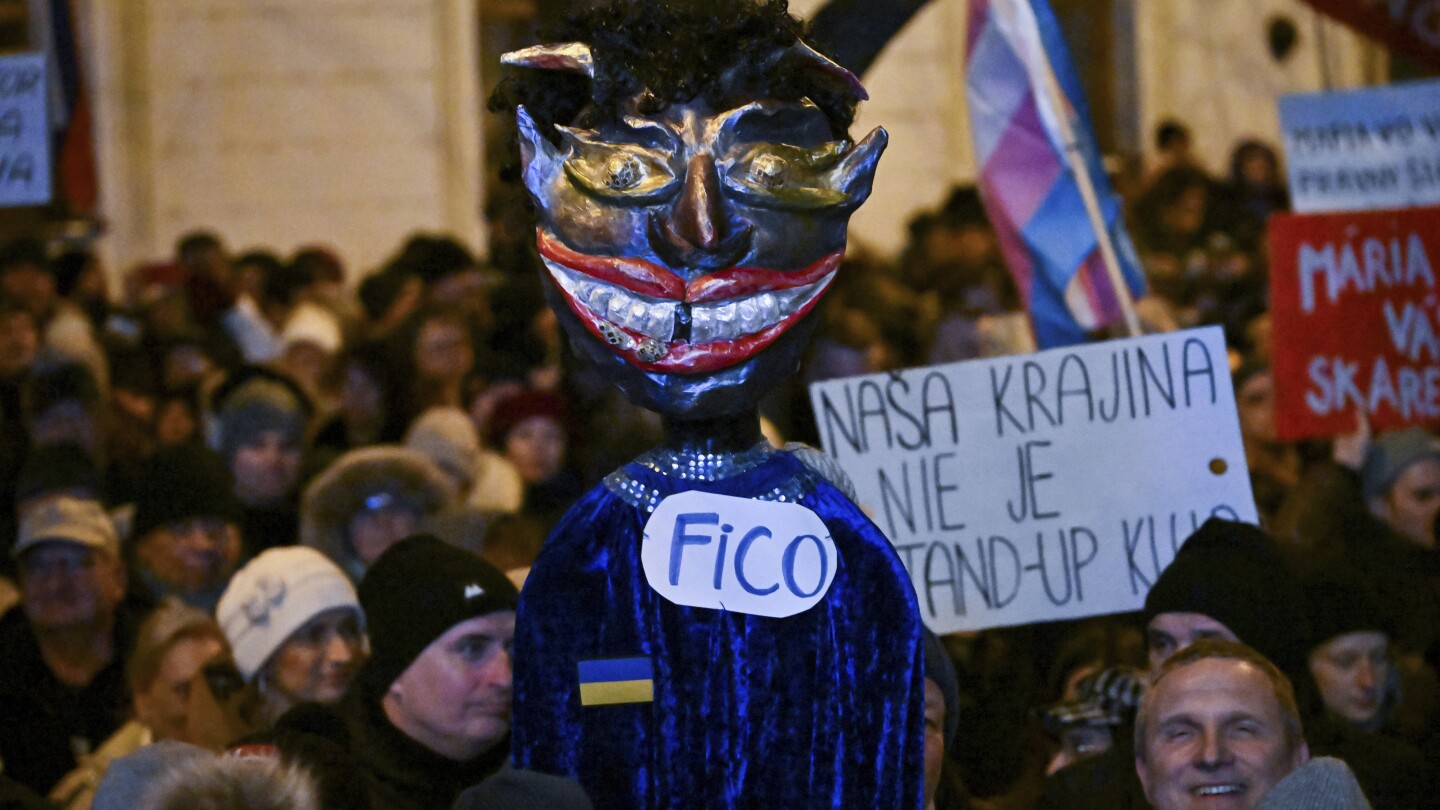BRATISLAVA, Slovakia (AP) — Thousands of people on Thursday joined growing street protests across Slovakia against a plan by populist Prime Minister Robert Fico to amend the penal code and eliminate a national prosecutors’ office.
The proposed changes have faced sharp criticism at home and abroad.
The plan approved by Fico’s coalition government includes abolishing the special prosecutors’ office, which handles serious crimes such as graft, organized crime and extremism. Those cases would be taken over by prosecutors in regional offices, which haven’t dealt with such crimes for 20 years.
The planned changes also include a reduction in punishments for corruption and some other crimes, including the possibility of suspended sentences, and a significant shortening of the statute of limitations.
Thursday’s protests took place in two dozens of cities and towns, including the capital, and spread also to Prague and Brno in the Czech Republic, Krakow in Poland and Paris.
“We’re not ready to give up,” Michal Šimečka, who heads the liberal Progressive Slovakia, the strongest opposition party, told the big crowd that filled the central SNP square in Bratislava.
“We will step up our pressure,” Šimečka said. ”We will defend justice and freedom in our country,” he said.
“Mafia, mafia” and “Fico mobster,” people chanted.
Earlier Thursday, the ruling coalition voted to use a fast-track parliamentary procedure to approve the changes. That means the draft legislation won’t be reviewed by experts and others usually involved in the common legislative procedures.
The coalition also voted to limit the discussion in the first of the three parliamentary readings. The opposition condemned the move.
“They decided to silence us in Parliament but they won’t silence you all,” Šimečka said.
The second reading, in which changes could possibly be made to the draft legislation, could take place next Wednesday while the final vote is possible by the end of next week.
President Zuzana Čaputová said the proposed changes jeopardize the rule of law and cause “unpredictable” damage to society.
Also, the European Parliament has questioned Slovakia’s ability to fight corruption if the changes are adopted. The European Public Prosecutor’s Office has said Slovakia’s plans threaten the protection of the EU’s financial interests and its anti-corruption framework.
Čaputová said she is willing to bring a constitutional challenge of the legislation. It’s unclear how the Constitutional Court might rule.
Fico returned to power for the fourth time after his scandal-tainted leftist party won Sept. 30 parliamentary elections on a pro-Russia and anti-American platform.
A number of people linked to the party face prosecution in corruption scandals.
Fico’s critics worry his return could lead Slovakia to abandon its pro-Western course and instead follow the direction of Hungary under Prime Minister Viktor Orbán.

